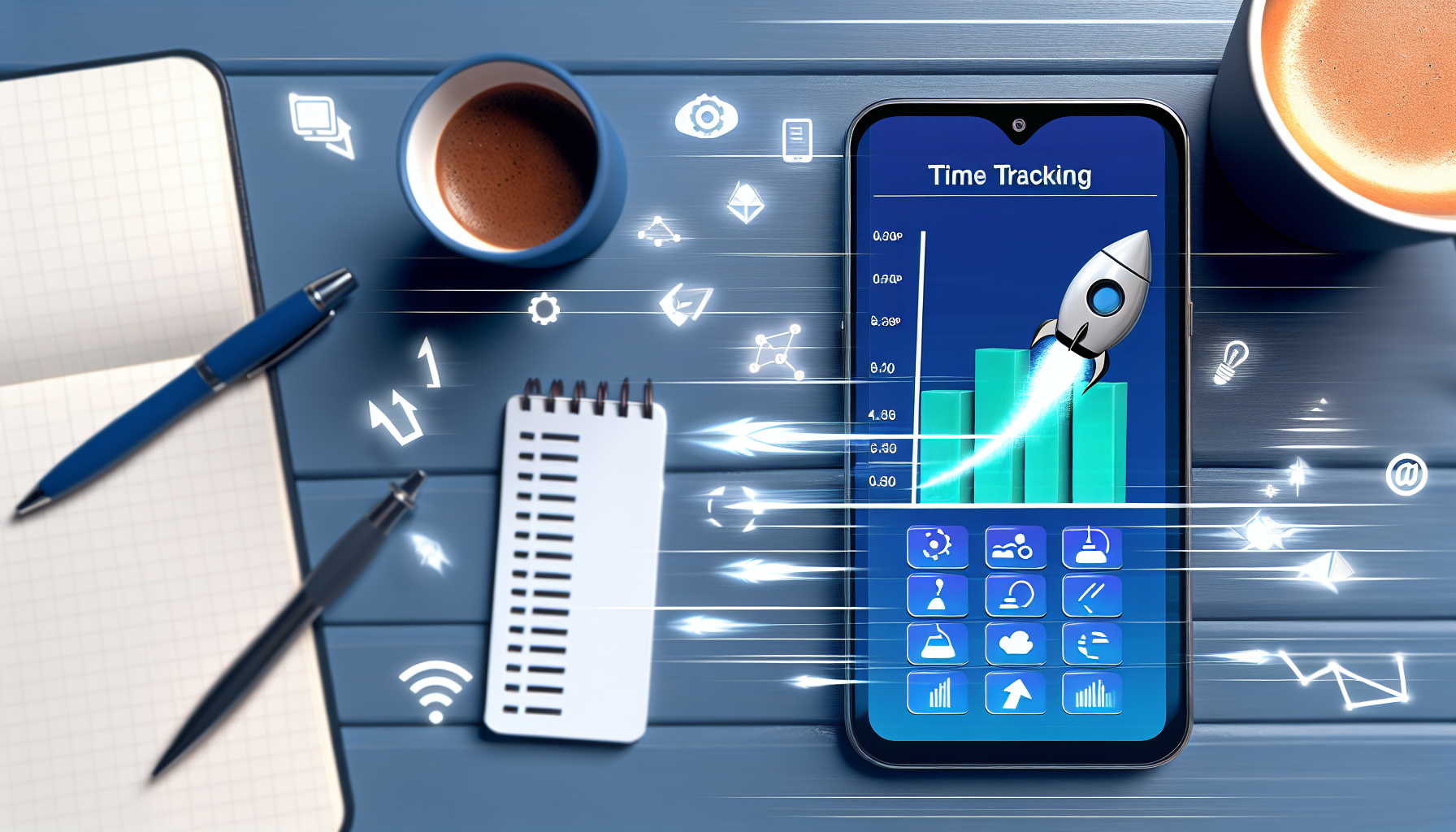How to Use Time Tracking Apps to Boost Productivity
Ever felt like the hours in a day just vanish without any meaningful output? You’re not alone. Many people, especially digital nomads, struggle with productivity. But, what if there was a simple tool to turn those disappearing hours into productive milestones? Enter time tracking apps. These handy tools can transform your productivity game, keeping you both accountable and effective. Intrigued? Let’s dive into how you can harness the power of time tracking apps to maximize your productivity and achieve more with your time.
Key Takeaways
- Understand the Importance of Time Management: Recognize that knowing where your time goes is the first step towards better productivity.
- Choose the Right Time Tracking App: Pick an app that suits your needs, whether for project management, invoicing, or personal productivity.
- Set Clear Goals and Tasks: Define what you want to achieve and use the app to track progress.
- Analyze Your Data: Use the insights from your tracked data to identify patterns and make adjustments.
- Develop Healthy Habits: Use time tracking to instill habits that enhance productivity and well-being.
Understanding the Importance of Time Management
Time is an invaluable resource—you can’t get it back once it’s gone. Productivity expert Laura Vanderkam states, “You have a choice about how you spend your time,” and the key to optimizing this lies in knowing exactly where your hours go. Time tracking apps provide detailed insights into your daily activities, highlighting inefficiencies and areas for improvement.
Choosing the Right Time Tracking App
Not all time tracking apps are created equal. While some excel in project management, others might be better for personal productivity or invoicing. Here’s a table comparing three popular time tracking apps:
| App Name | Best For | Key Features |
|---|---|---|
| Toggl | Freelancers | Simple interface, browser extension, reporting |
| RescueTime | Personal Use | Automatic tracking, productivity scores, alerts |
| Harvest | Team Projects | Invoicing, project management, integrations |
Pick the app that aligns best with your specific needs to make the most out of tracking your time.
Setting Clear Goals and Tasks
One cannot simply track time aimlessly and expect to boost productivity. Establishing clear goals and tasks is essential. Whether you’re drafting a proposal, coding a website, or learning a new skill, define what success looks like for each task. Author Brian Tracy aptly puts it, “Successful people are simply those with successful habits.” Use the time tracking app to set deadlines and milestones, breaking your goals into manageable chunks.
Analyzing Your Data
Once you’ve tracked your time, the real magic lies in analyzing the data. Most apps offer detailed reports that can help you identify productivity patterns. Are you spending too much time on emails? Is there a particular time of the day when you’re most productive? Use these insights to tweak your schedule and eliminate time-wasting activities.
Developing Healthy Habits
Time tracking goes beyond mere productivity—it’s also a tool to cultivate healthier lifestyle habits. Ensure you allocate time for breaks, exercise, and other self-care activities. Lifestyle coach Tony Robbins emphasizes, “Habits form the cornerstone of our lives.” Use the app to remind you to step away from the screen, take a walk, or practice a few moments of meditation.
Living or Experiential Tips
- Start Small: Begin by tracking a few key activities rather than your entire day. This makes it less overwhelming and easier to adjust as you go.
- Consistency is Key: Make a habit of reviewing your tracked data at the end of each day to evaluate progress and plan for the next.
- Leverage Reminders: Use the app’s reminder features to stay on track and avoid slipping into unproductive habits.
- Collaborate and Share: If you’re working with a team, share your tracked data to enhance collective productivity.
- Stay Honest: Be truthful when logging your activities. Inaccurate data will lead to misleading insights.
By implementing these tips, you can engage more effectively with your time tracking app and see tangible improvements in your productivity.
Source Links
FAQ
Q1: Are time tracking apps suitable for both personal and professional use?
A: Absolutely! Time tracking apps are versatile tools that can be tailored for personal productivity as well as professional project management.
Q2: Do I need to pay for a time tracking app to get the best features?
A: Not necessarily. Many apps offer excellent free versions with robust features. However, premium versions may provide advanced functionalities like in-depth reporting and integrations.
Q3: How can I prevent over-reliance on time tracking apps?
A: Use the app as a guide rather than a crutch. Balance structured time tracking with flexibility to allow for creativity and spontaneous breaks.
By integrating these elements into your routine, you’re on the path to not just greater productivity, but a more balanced and fulfilling work-life experience. Happy tracking!
